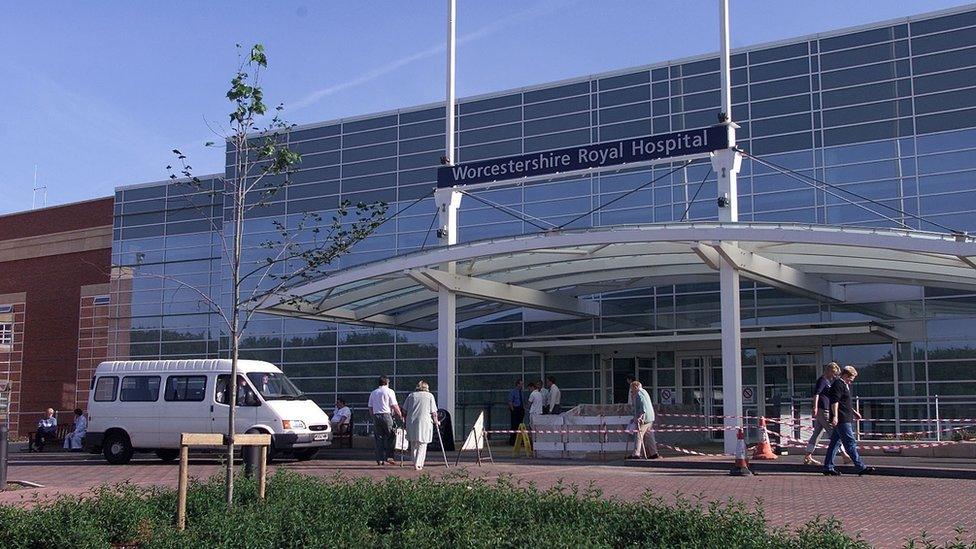Worcestershire: Hospitals assess care in corridors and ambulances
- Published
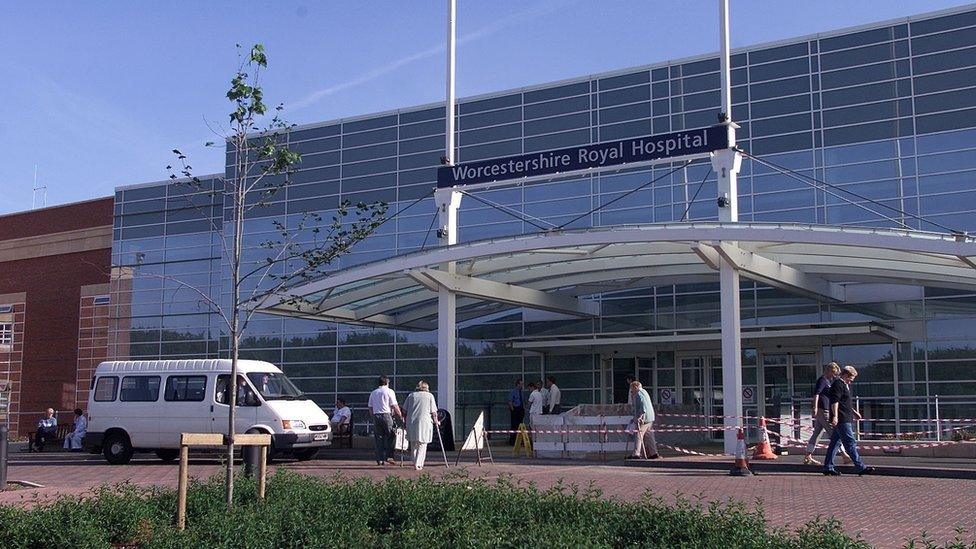
A bigger A&E is not expected to open at Worcestershire Royal Hospital until May next year
Hospital bosses in Worcestershire have said they "feel forced" to choose between treating patients in corridors or in the back of ambulances.
Worcestershire Acute Hospitals NHS Trust says it is 45 beds short, with 20 people a night waiting in A&E.
The trust previously came under fire for the "routine use" of a corridor at Worcestershire Royal Hospital to care for patients.
The situation has prompted a call for an emergency to be declared locally.
At a meeting of the council's health overview and scrutiny committee on Monday, councillor Richard Udall asked why there had been no such declaration in the circumstances.
A new 30-bed, short-stay unit at the Royal, which opened in July, had made "little to no impact" on tackling waiting times and handover delays, said Paul Brennan, deputy chief executive of the trust which also runs Alexandra Hospital in Redditch.
He said "experimenting" with the way patients were moved around the site after the opening of the temporary ward had seen the number of hours lost because of handover delays "plummet" from 800 to about 170 in the first week of a trial, but they shot straight back up to 800 again within a month.
Mr Brennan added, however, he expected the new "model" to begin to bear fruit and cut delays when extra space opened up in a refurbished building in mid-November.
'No CQC blessing'
He said moving patients into corridors did not "have the CQC's blessing" but the health watchdog was aware the trust was "rebalancing the risk" against having to treat those same people in the back of an ambulance.
The Royal is struggling for space according to bosses who report there are often 100 people in an A&E department built for half the amount, with about a fifth of those patients in desperate need of a bed the hospital cannot provide.
A bigger A&E is not expected to open at the Royal until May next year.
Mari Gay, managing director of the new NHS Herefordshire and Worcestershire Integrated Care Board (ICB), admitted the NHS was still in a "very challenging position", the Local Democracy Reporting Service reported.
In Worcestershire, she said, there continued to be a struggle with long ambulance handover delays, staff shortages and lack of space, as well as rising Covid-19 infections.

Follow BBC West Midlands on Facebook, external, Twitter, external and Instagram, external. Send your story ideas to: newsonline.westmidlands@bbc.co.uk, external
- Published18 October 2022
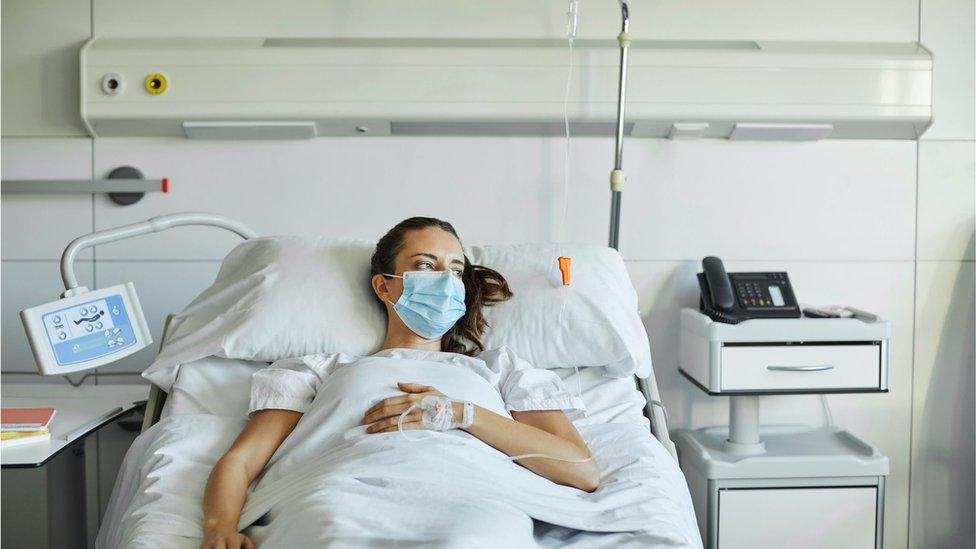
- Published13 October 2022
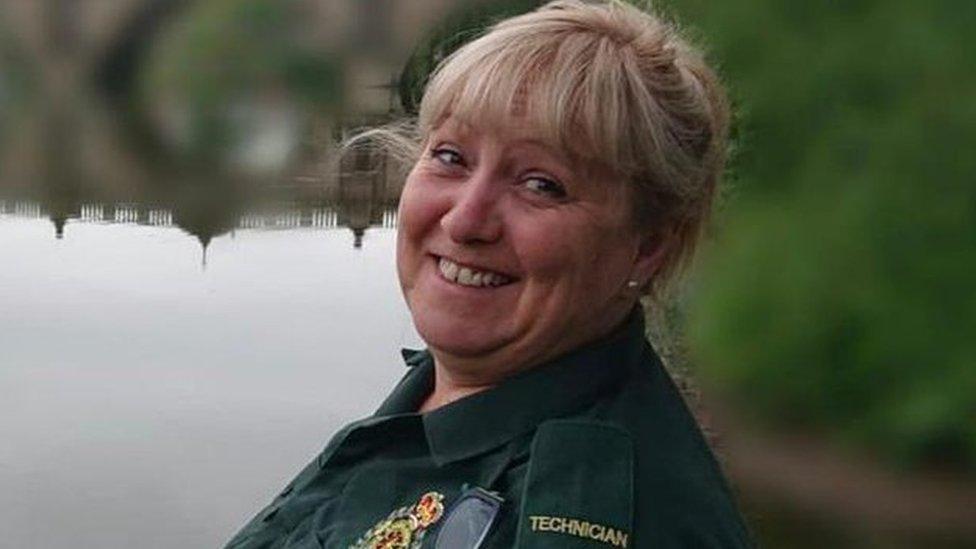
- Published7 July 2022
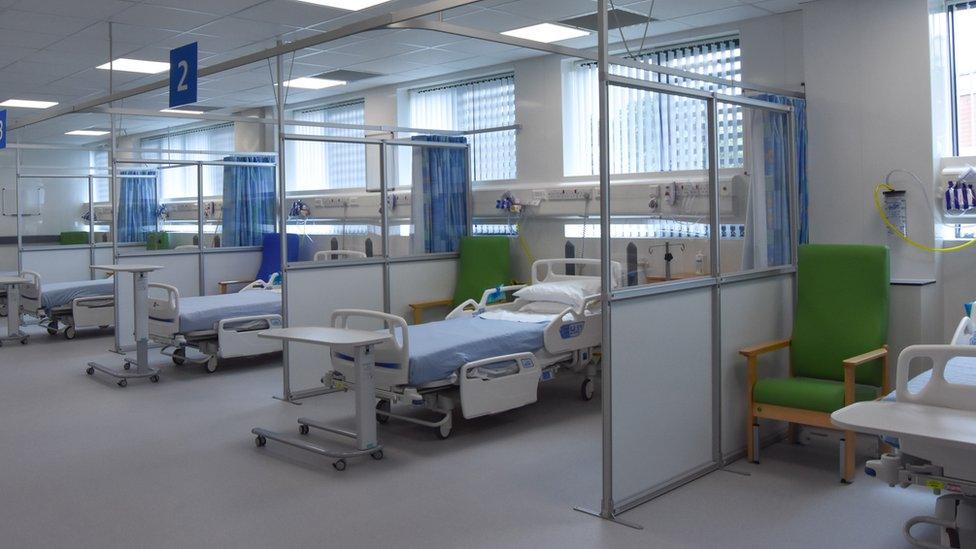
- Published5 June 2018
